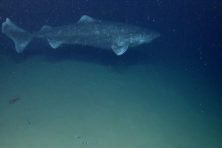On Crows
- Share
- Tweet
- Pin
- Share
It is said among farmers that crows can read your mind. Something about their manner, their dark eye, I once had a crow, more precisely she had me. I had found her in a snowy field one winter evening, broken wing. Not the first bird or wounded creature this farmboy found. Most struggled to get away, some were never caught. They died. When I found this crow it was as if she recognized her predicament and rather than struggle to get away, hunched down and waited for me to pick her up.
I took the crow to the farmhouse, my mama’s kitchen, this not the first like episode of carrying some wounded thing to the kitchen table. We disinfected the wound and bound the wing to the crow’s body with a cotton winding. The result was rather comic. I went off for the evening milking.
On my return to the house, as I came through the mudroom door, I heard the crow’s rather loud call. Actually more a complaint. Entering the kitchen to see her perched on the chair seat scolding my mom for another bit of hamburger or pork chop or fried potato.
“Hungry little beast” were my mother’s words. “A touch noisy,” she added, as this creature again loudly claimed a share of our supper.
After supper I hastily built a crude cage in the cellar, using a spare storm window, some boards, chicken wire. I moved the crow downstairs to the cellar for the evening. My plan was rudely interrupted by a continuing series of loud objections at being segregated. My mom peered over her eyeglasses several times that evening as if to ask why I didn’t just let it die. Unsaid was, “Now what are you going to do with it?”
Before the evening was out I returned to the cellar, the fire needed stoking anyway. The crow patiently watched as I fashioned a pedestal from a spare porch post, with a base and platform at the top. About three feet tall to include a scattering of straw on the platform. This I brought back upstairs, set up in the living room like some kind of lamp, then returned for the crow. It was a Tuesday night, meaning The Red Skelton Show, which the crow watched with us and rather intently. My mom was looking at all this, over her glasses.
The crow’s wing ultimately healed. I believed she could have flown away but she didn’t. If sometimes she would look questioningly at the sky, perhaps only nostalgia. She never flew again, if she did hop, and paraded around the farm as if she owned it. She did on occasion glide, but she never flew off to the horizon and not return. My mom did encourage me to let her go, but she wouldn’t go. At the supper table she clung to the back of my chair, or on my shoulder which didn’t last because while it may look neat enough in pirate movies, a crow can insert its talons as easily as any hypodermic needle. She ate what we ate.
A French theme park has trained crows, the European variant known as rooks, to pick up cigarette butts and other trash. Puy du Fou is a theme park near Les Epesses, a period village set piece including paths and gardens, and the standard problem of patrons who don’t know the polite way to dispose of trash.
A falconer named Christophe Gaborit came up with the idea of training rooks, that are more ravens than crows, to this steady if noisome job of cleaning up after tourists. Having seen crows sort through leaf litter he wondered why they might not be trained to “sort human litter.” By rewarding them with an automated feeder, he trained the rooks to a daily work schedule. It worked out well until the rooks attempted a job action by returning with bits of wood instead of trash for their reward. Seems the automated reward system couldn’t distinguish bits of wood or gravel from trash.
The hope was that seeing the crow/trash detail at Puy du Fou, would in time train tourists to do the same. Ironically the rooks have become an attraction in their own right. To the consequence tourists bring trash to dispose of at the park. Guaranteeing the steady and full employment of the rooks. This being France there is a pension attached and liberal working hours. Some non-smoking tourists admit to picking up cigarette butts from other locations to deploy at Puy Du Fou.
My grandfather once said he was disappointed in Christianity for using the dove as the messenger of God. He believed it should have been the crow.
Justin Isherwood is an award-winning writer, a Wisconsin farmer, humorist, author and contributor to numerous collections and publications including Badger CommonTater, Isthmus and Newsday. His books include Christmas Stones & the Story Chair, Book of Plough, Farm Kid and Pulse.

